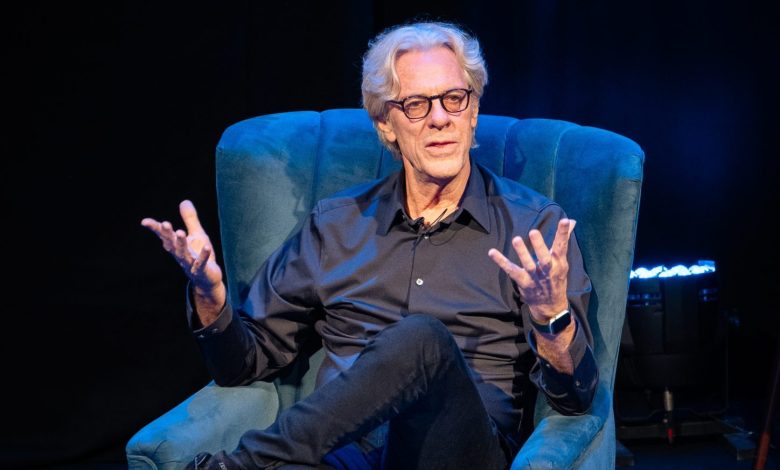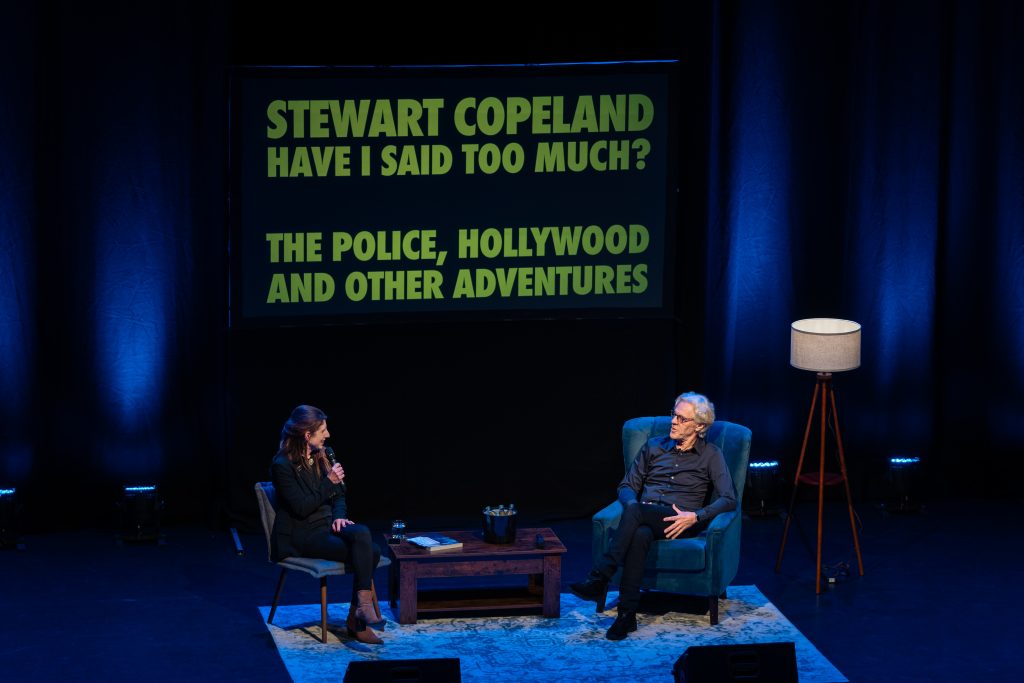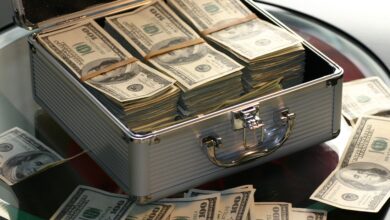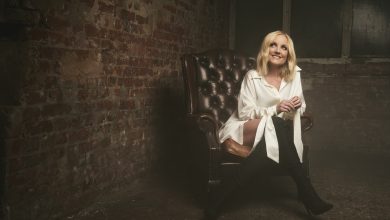
He’s a bona fide rock star who was inducted into the Rock and Roll Hall of Fame before today’s crop of rock stars had even been born. Becoming an all-time great after recruiting Sting and Andy Summers into his band, The Police, they sold 60 million records, with hits Message In A Bottle, Walking On The Moon and many more.
After disbanding in 1986, Stewart was far from done, composing soundtracks for blockbusters and with subsequent near-four decades at the forefront of contemporary music. We sat down for a chat to find out about his incredible career.
How did you end up where you are today?
“Music’s always been in my blood: my dad was a jazz aficionado, and my brothers Miles and Ian pretty much brought the English New Wave invasion to America. They started IRS Records, which gave us The Bangles, The Go-Go’s and REM. Sadly we lost Ian to melanoma in 2006. I miss him every day.”
Where did you come in to all this?
“I was 12 and playing drums in a school band. I noticed a girl, Janet Roberts, grooving to my beat – to me she was a Goddess and out of my reach. But she was dancing to my groove! I was playing in the band and she was dancing and I couldn’t believe I was causing her to move. It was an epiphany. I was the runt of the litter but banging on the drums turned me into an 800lb silverback, swinging through the trees.”

What happened next?
“I was 15 and playing drums during a school Christmas service at Wells Cathedral. I’ll never forget my music teacher pointing his finger at me to begin. For a moment, I was leading this magnificent artistic enterprise that I’d just been absorbing so profoundly. I was now the boss of it – and that told me there was a higher purpose in music, higher even than 15-year-old girls called Janet.”
Moving on to The Police: do you really think you where conquering the world?
“It’s a bunch of statistics. The interesting thing for me about that era is the world of fame and what that looks like. You’re not yourself: life’s guardrails are removed and that’s why so many come a cropper because they’re not limited by the normal rules of social intercourse.”
But what about your audience’s response?
“The phenomenon itself is incredible. It’s such good fun. You do something and get an immediate response. You bang something, and 80,000 people cheer. It was everything we dreamed of, and it was wonderful to be the centre of that attention. But there’s a point where there’s such a thing as too much love and adoration, and that becomes oppressive.”
So how did you cope?
“Most of the time we were fine; we could handle it because we were young, egotistical and confident. We were in our late 20s by that time, so we’d lived some experiences. For the next eight years that was all we knew. We were riding that rocket ship.”
We’ve read recordings with The Police had ‘become hell’ – is that true?
“It was, so I went off to record a film score for Francis Coppola. I was struck by the relief and joy of that music. The lack of judgment and tension was incredible. To just be making music myself was a pleasure. Francis would come and say: ‘Great, great, great.’ It was heaven to learn there was a world outside of The Police.”
So composing became your lifeline?
“The Police was like a Prada suit made out of razor blades. Outside of the band I was an employee. I worked for hire in a studio creating music for money. Two different things. Guess which one made me happier?”

You’re now travelling the world with your Have I Said Too Much? tour. What can we expect?
“Simply put it’s me, in conversation, talking about my career from the early days until today. Because it’s been quite a ride during my 72 years on Planet Earth.”
Buy tickets for Stewart’s Have I Said Too Much? tour here.






